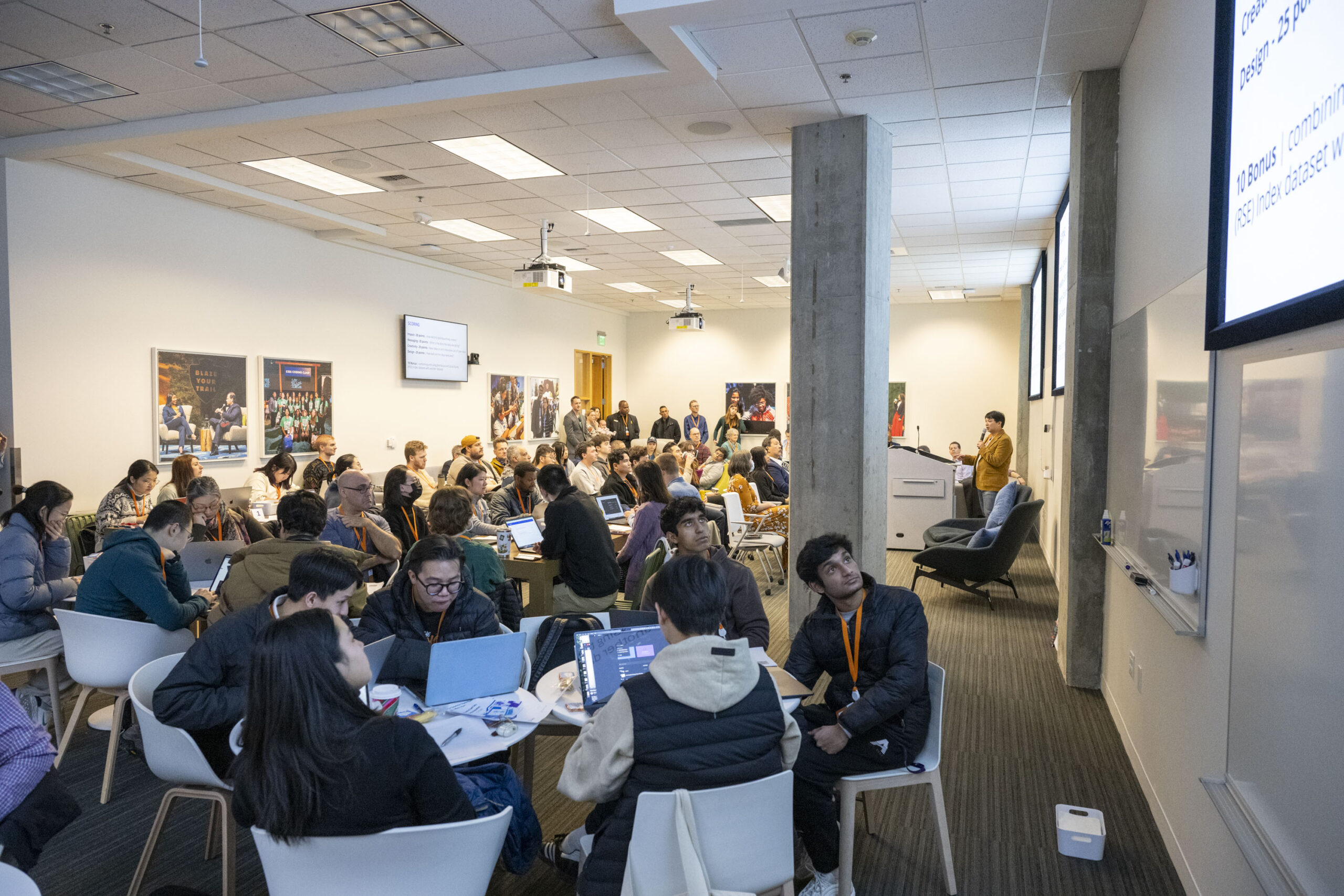
Today, the City of Seattle hosted a mini-hackathon competition to engage data scientists, students, and community members with the City’s Open Data portal as part of the new One Seattle Data Strategy. The event was held at Tableau’s Fremont headquarters, hosted by Salesforce. The mini-hackathon challenged participants to build a new dashboard or visualization using open data to tell a compelling story.
First place in the Open Data Mini-Hackathon went to Team Bun Bun, including team members from the University of Washington and Seattle Public Libraries, with a visualization that mapped multifamily building permit data onto the Race and Social Equity Index Map. Team PSRC_Data, including staff from the Puget Sound Regional Council, took second place with their visualization using Seattle’s building permit data.
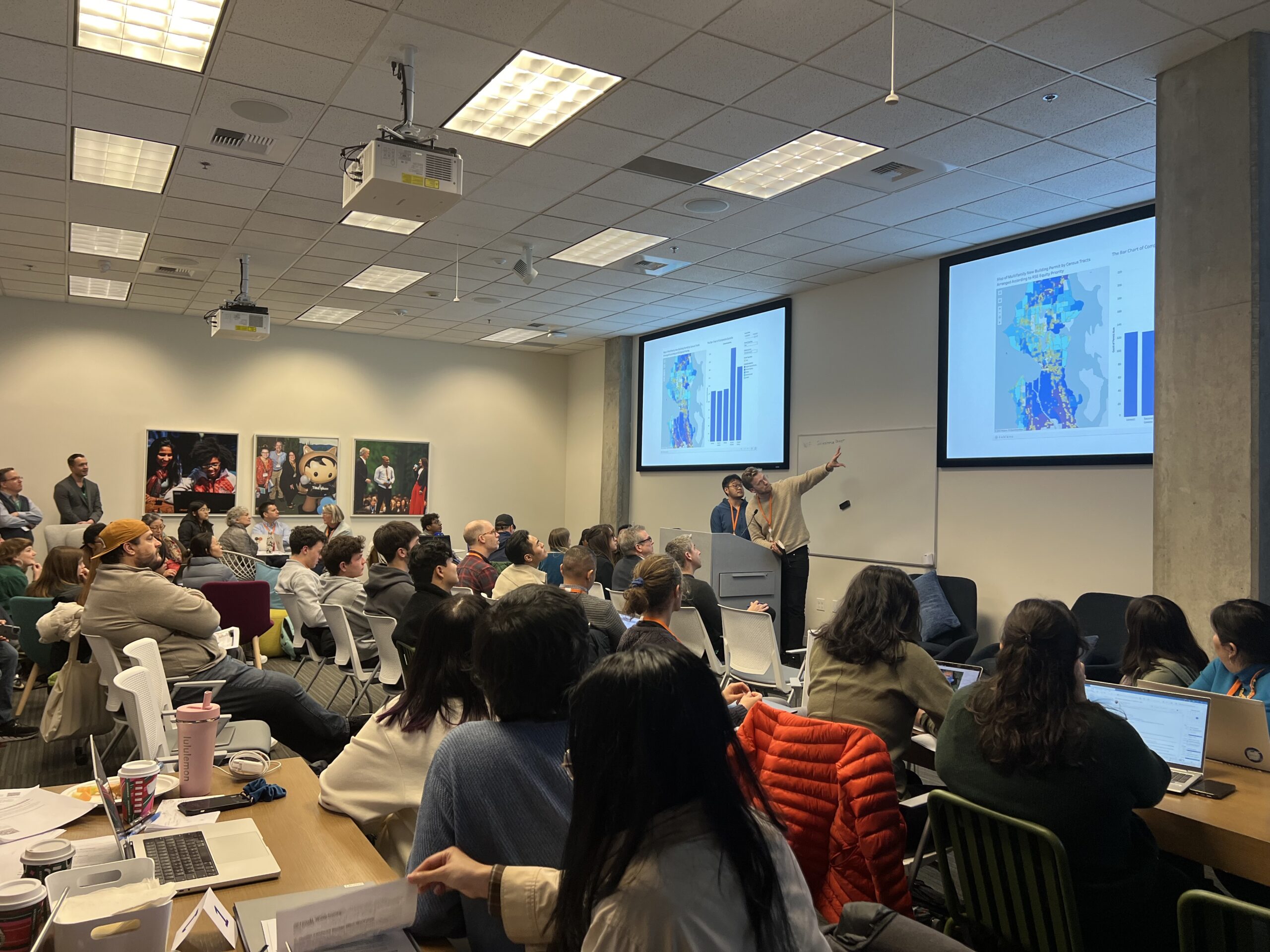
The friendly competition was judged based on which dashboard or visualization best embodied the One Seattle Data Strategy. Judging criteria included impact, messaging, creativity, and design, with bonus points awarded for using the City’s Racial and Social Equity Index. Hackathon participants included teams from the Puget Sound Regional Council (PSRC), Qualtrics, teams from the University of Washington and Northeastern University, as well as other community members.
Mayor Bruce Harrell gave opening remarks at the hackathon and launched the City of Seattle’s first comprehensive One Seattle Data Strategy. Mayor Harrell also signed an Executive Order to implement that strategy over three years. This work builds on Seattle’s strong foundation as a national leader in the use of data. The strategy focuses on connecting currently siloed efforts, scaling up prior successes, and empowering community to use public data.
What is the One Seattle Data Strategy?
The One Seattle Data Strategy is a three-year plan and would be the City’s first comprehensive and cohesive effort to address how we collect, store, use, and share data internally and externally. The strategy identifies four key pillars to address:
1. Data quality and governance: Strengthening data management and quality standards by establishing unified standards and processes for data management across City agencies.
2. Data literacy and culture: Empowering City staff to lead and innovate with data by establishing data leadership at all levels of the organization, upskilling staff, and creating opportunities for City employees to use data to inform decisions.
3. Data use and equity: Leveraging resources and knowledge for increased collaboration, equity analysis, and consumption of data that will lead to data-informed outcomes, improved transparency, governance, and citizen engagement.
4. Data and community engagement: In addition to advancing our Open Data practices, we will launch work to drive better data transparency, communication, and connection with community members.
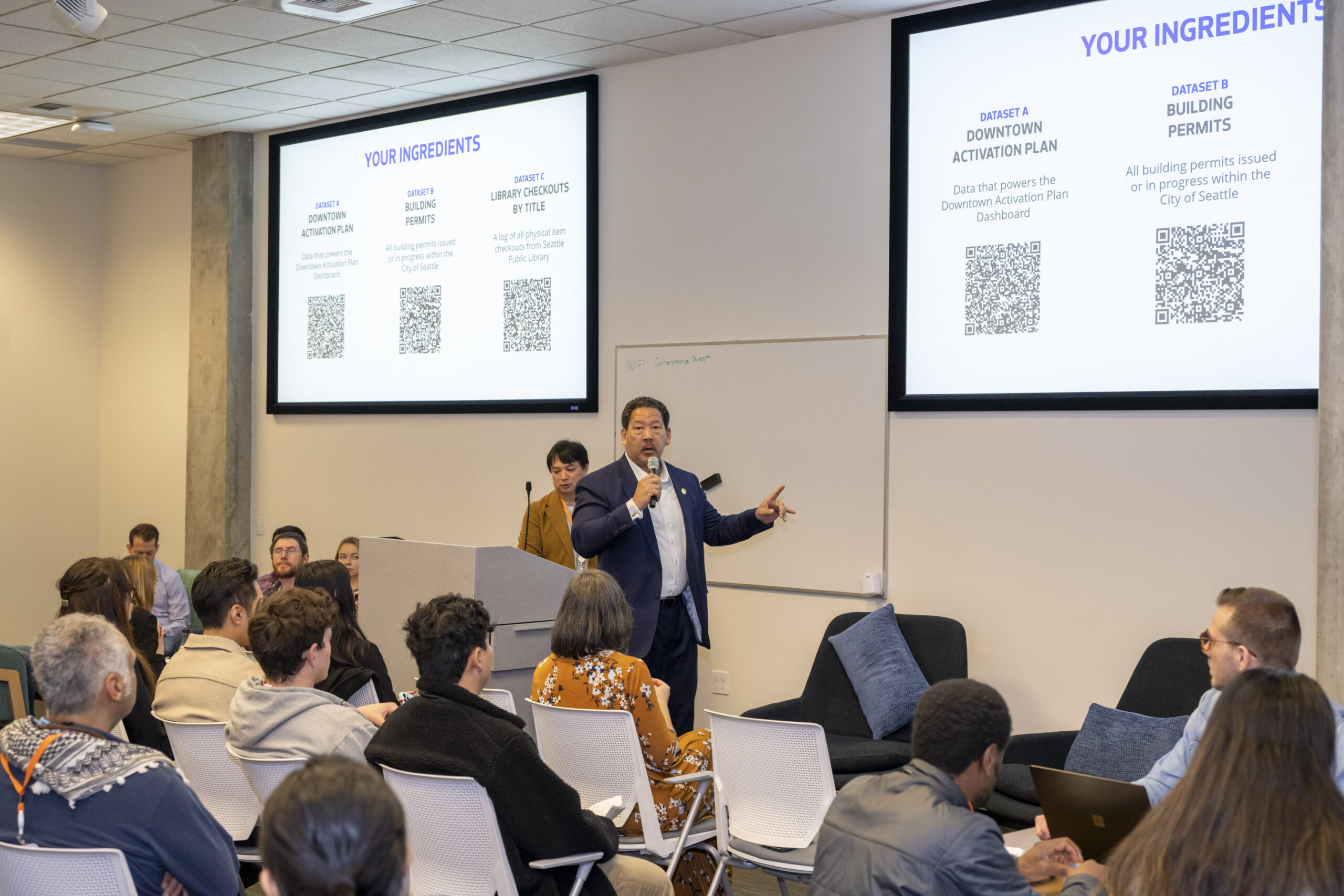
The Data Strategy and Executive Order are part of Seattle’s participation in the Bloomberg Philanthropies City Data Alliance, which works with cities across the Americas to bolster their use of data to strengthen government operations, innovate public services, and produce better outcomes for residents. Seattle was selected to participate in the City Data Alliance due to its strong track record of using data to inform decisions and improve services. Seattle’s participation in the City Data Alliance builds on its work through the Bloomberg Philanthropies What Works Cities Certification, which sets a standard of excellence for data-informed, well-managed local government, and recognized the City with Gold Certification.
An interdepartmental City effort led by the Innovation and Performance (IP) team has been working with the Bloomberg Philanthropies City Data Alliance throughout 2023 to develop a plan for each pillar. The plans include a mix of short-term priorities – like a new internal data collaboration portal – with longer-term efforts like updating Seattle’s open data policy. The draft Data Strategy identifies projects, policies, and processes to be developed, iterated, and evaluated from 2024-2026. Timelines vary by project, but the general approach is to draft, socialize, and test ideas in 2024, iterate and improve those ideas in 2025, and formalize and fully implement them in 2026.
New Executive Order Signed
The Mayor’s Executive Order has four key components to advance the Data Strategy:
1. Direct all departments to join the One Seattle Data Strategy
2. Direct all departments to develop an implementation plan to improve the use, governance, staffing, communication, and accuracy of data
3. Launch a new interdepartmental team to develop shared standards for demographic data
4. Establish a new internal governance board to align policies and standards across the City
Thank You Hackathon Participants!
We would like to thank everyone who participated in the Open Data Mini-Hackathon. There were 10 teams with 58 people competing. Special thanks to Tableau and Salesforce for supporting the event, and to the competition judges:
- Jim Loter, Interim City of Seattle Chief Technology Officer
- Janis Jordan, Evaluation Advisor, Innovation & Performance
- Matt Coles, Tableau Senior Product Manager
Congratulations to our first place team, Team Bun Bun, for their winning visualization on multifamily building permit data!
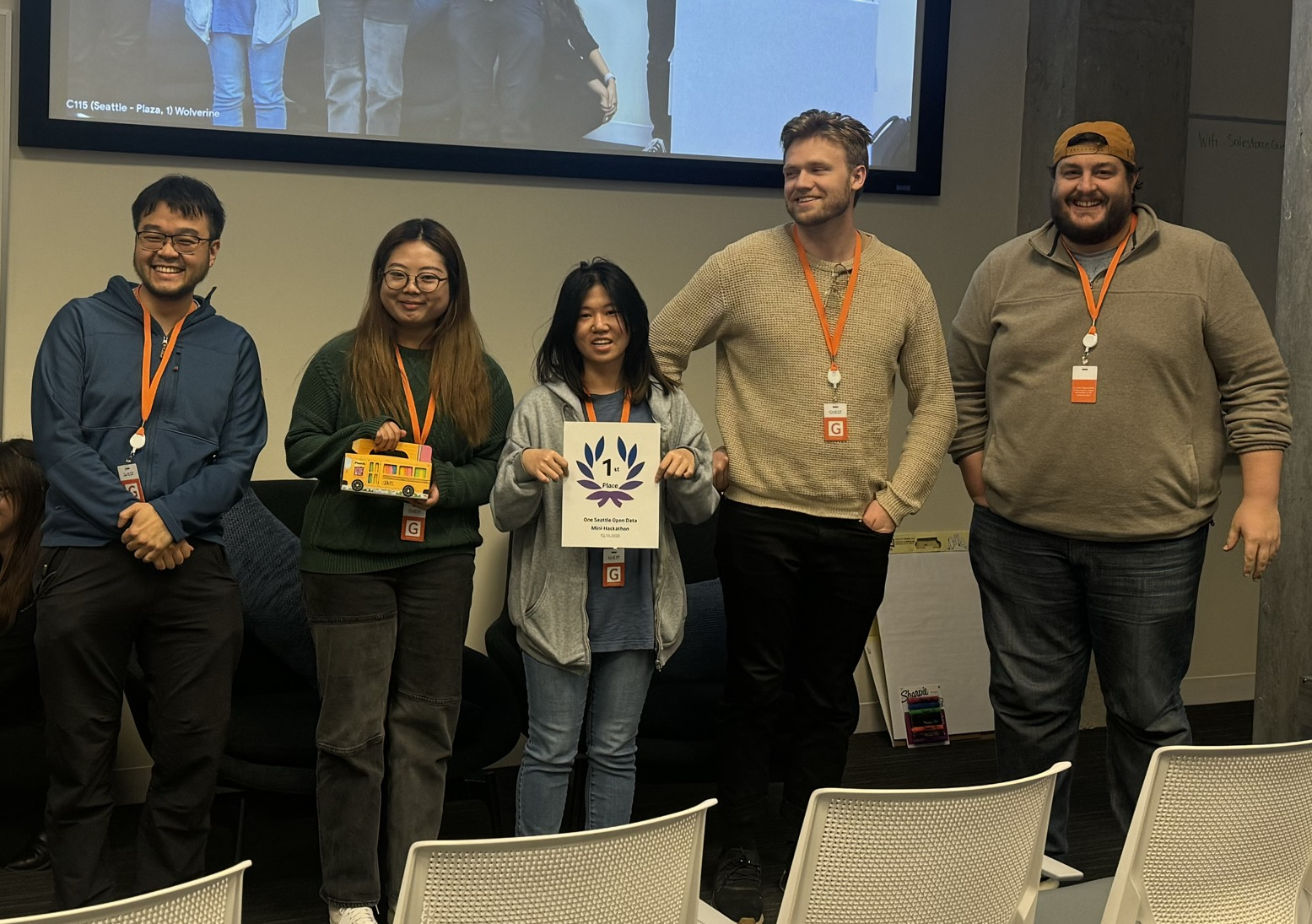
Congratulations to Team PSRC_Data, who came in second place for their visualization on building permit data! Their app shows the median time in days to issue a housing permit across Seattle’s Racial and Social Equity Priority Areas by the size of the household development. The team’s source code is open.
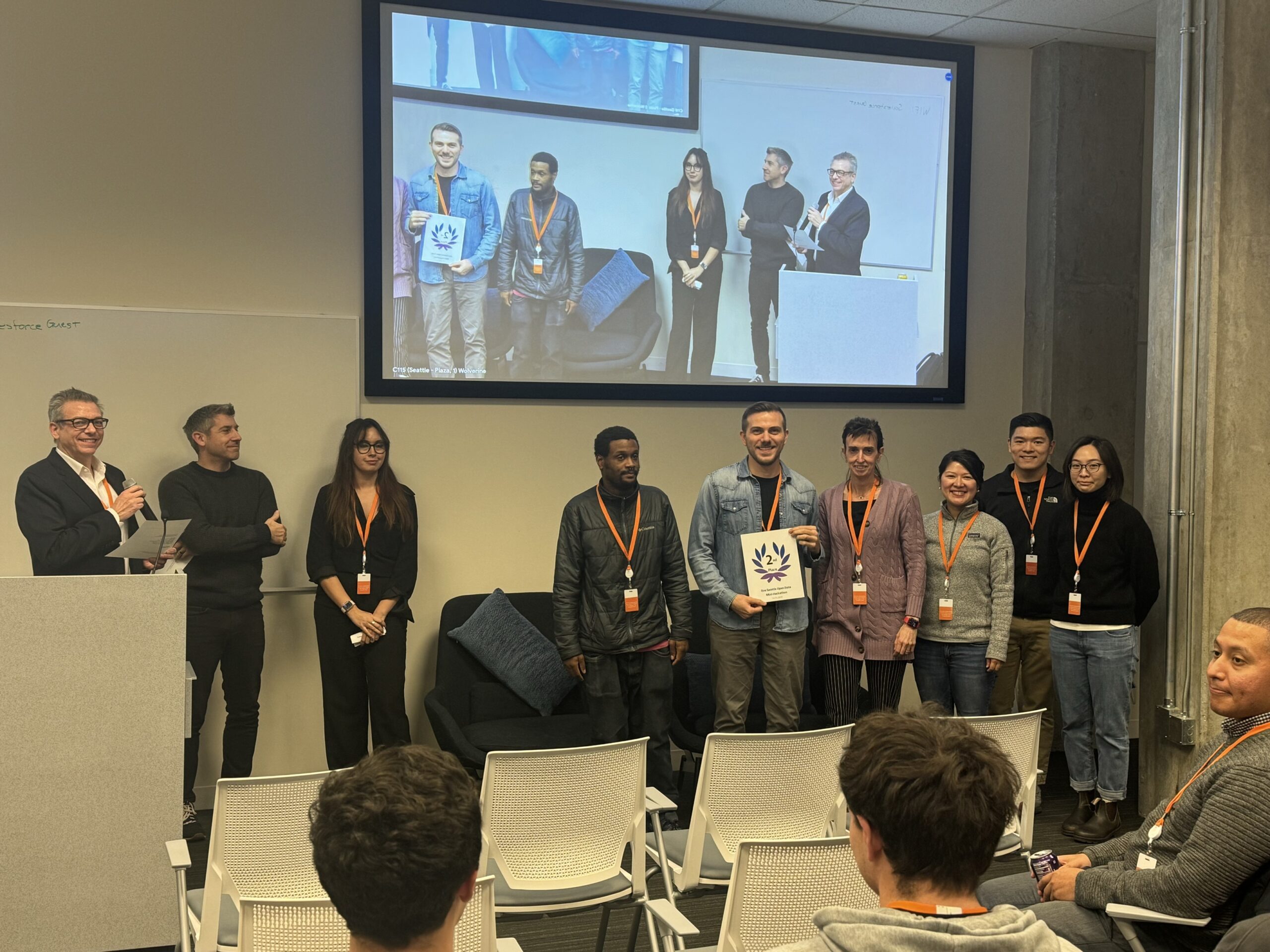
Read more about the One Seattle Data Strategy, and stay up-to-date with Innovation and Performance by signing up for our newsletter.